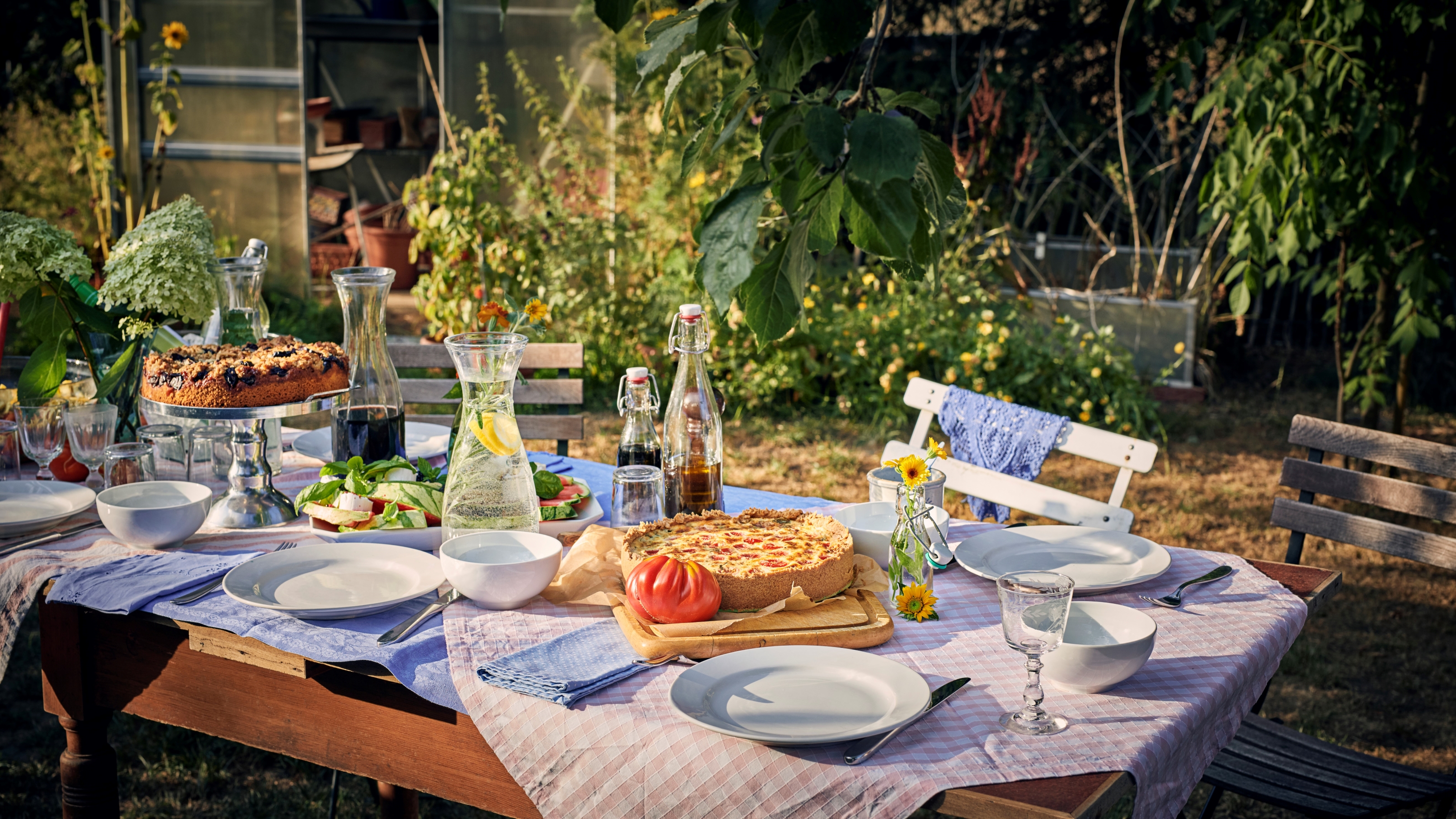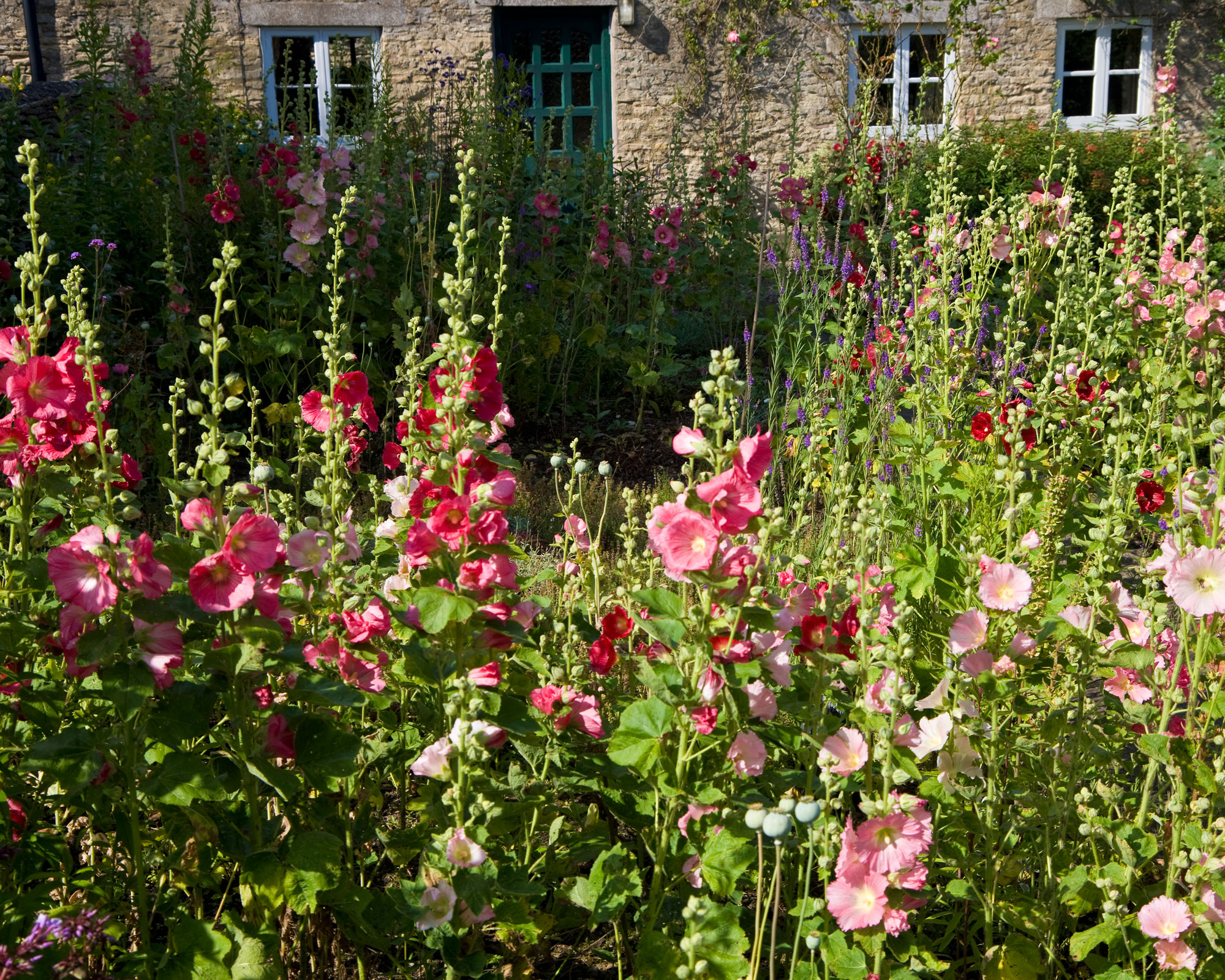How to get rid of outside flies: 7 effective methods to try in summer
Find out how to get rid of outside flies to stop them from intruding on your patio parties throughout the summer. These tried and tested methods will help keep the most annoying flying pest away from your backyard or balcony

Want to know how to get rid of flies? Don’t we all. Come summer, these annoying common flying insects plague our backyard parties (party nibbles are irresistible to all guests, including the ones with wings), invade our garden rooms and conservatories, and just seem not to respect any boundaries whatsoever. They will land on your arms and legs, sit at the table with you, and buzz around your garden home office for hours, seemingly unable to find the way back out the open door...
Fortunately, as with getting rid of flies indoors, there are ways to tackle their presence outside also, even if it does require a little perseverance. We’ve spoken to pest control experts to get their top tips for getting rid of flies for good, and for preventing them from coming back.
How to get rid of outside flies
Getting rid of flying insects inside and outside your home often requires a layered approach. You need to start at the source and ideally try a couple of different methods to see what works for your space,
1. Get rid of organic waste from your backyard
Organic waste is the number one reason flies are congregating in your yard. Zachary Smith, President of California-based Smith's Pest Management, explains that ‘flies are attracted to decaying organic matter, where they will happily lay their eggs. The best way to get rid of flies is to eliminate any organic matter on your property.’
This means making sure your garbage cans have secure lids and are never left open, but you also may need to rethink what you’re putting on your compost heap, if you have one. Learning how to make compost without attracting pests and vermin is all about composting the right things – green and brown waste, but never food, which belongs in your food bin at home. You should also invest in a secure compost bin that will reduce the number of pests that are attracted to your compost.
2. Enjoy dining al fresco? Clean up right after
We’ve all witnessed how persistent flies are once they’ve discovered a tasty treat on your dining table. Whether it’s a spilled drink (mmm, sugar), the remnants of your al fresco lunch or party nibbles, flies will want to join the feast. Smith emphasizes that ‘if your family enjoys eating outside, make sure to clean up right after you're done -- this includes wiping down tables and chairs to eliminate traces of food residue that might attract flies.’ The same goes for your BBQ grill, clean it right after you’re done barbecuing, as stuck-on grilled food is irresistible to flies.
3. Use fly traps or fly baits
You can also consider using fly traps (available from Amazon) or fly paper - ‘hang several around the perimeter of your home. Liquid fly baits also work very well. You can apply the bait near areas where flies congregate, like the trash area. The bait dries clear and provides protection from flies usually for up to a month.’ For liquid bait, you can use:
Get small space home decor ideas, celeb inspiration, DIY tips and more, straight to your inbox!
- Half a cup of vinegar
- Half a cup of water
- Two tablespoons of sugar
- One tablespoon dishsoap
Leave the mixture in glass jars along the perimeter of your yard. Flies fall into the liquid and drown. It’s not a humane method for getting rid of them, but it will reduce the number of flies in your yard.
4. Try essential oils
Sprinkling essential oils on an around your dining table or using an essential oil candle can work for flies, if you use the right scent. According to Smith ‘flies greatly dislike the smell of pine’, so you can give that a go, bearing in mind that pine essential oil is toxic to pets.
5. Pick up your pet waste
This is gross, but it is common knowledge that outside flies cannot get enough of cat and dog poop. So, pick it up, as soon as your pet has done its business. This is less of an issue with cats as they tend to either use indoor litter boxes or bury their waste, but dogs don’t. Gabriel J. Croteau, Certified Master Gardener at Juliei Salone, stresses that the successful elimination of outdoor flies has to rely on making sure ‘there is no food for them to eat—including pet waste!’
6. Start a wildflower garden
This may sound counterintuitive, but attracting more insects to your yard will make it less attractive to flies. ‘You might want to consider planting some flowers or herbs in your garden that attract bees instead of flies. This will help keep your plants healthy while keeping away unwanted pests!’ In general, creating a wildlife garden will mean that there are more species that eat flies, such as spiders, frogs, and newts.

7. Try hanging bags filled with water along your porch
This may not be the best-looking solution, but apparently, the reflections from the water in the bags irritate the flies and they keep away. Best as a short-term fix.
What will keep flies away?
Keeping flies away from the inside of your home is relatively easy: just make sure that you have ‘screens on all of your windows and doors. This will allow air to circulate freely inside the home, but it will keep flies out.’
Keeping flies permanently away from the outside of your property is much harder, and probably impossible to achieve completely. However, Croteau recommends buying a fly swatter (from Amazon) and using it often. Flies are persistent, but they do learn after a while that at least the immediate vicinity of where you are sitting outdoors is a no-go zone.
Other than that, it’s all about cleaning and yet more cleaning (see step two). Croteau reiterates that ‘flies are attracted to both garbage and leftover food; by cleaning up after yourself, you'll reduce the number of flies in your yard.’
What smell do outdoor flies hate?
We’ve already mentioned pine, but if you’re not keen on smelling pine, try lavender or citronella. This writer has tried lavender and can confirm that it works: get a good-quality essential oil diffuser and use it outside with lavender essential oil. Flies won’t go anywhere near you.
And, as Croteau helpfully reminds us, ‘In addition to being a great way to naturally repel flies, lavender has several other benefits as well. It has been shown to help reduce stress and anxiety when used as an essential oil or incense.’ Now, here is the definition of a win-win.
Anna is a professional writer with many years of experience. She has a passion for contemporary home decor and gardening. She covers a range of topics, from practical advice to interior and garden design.